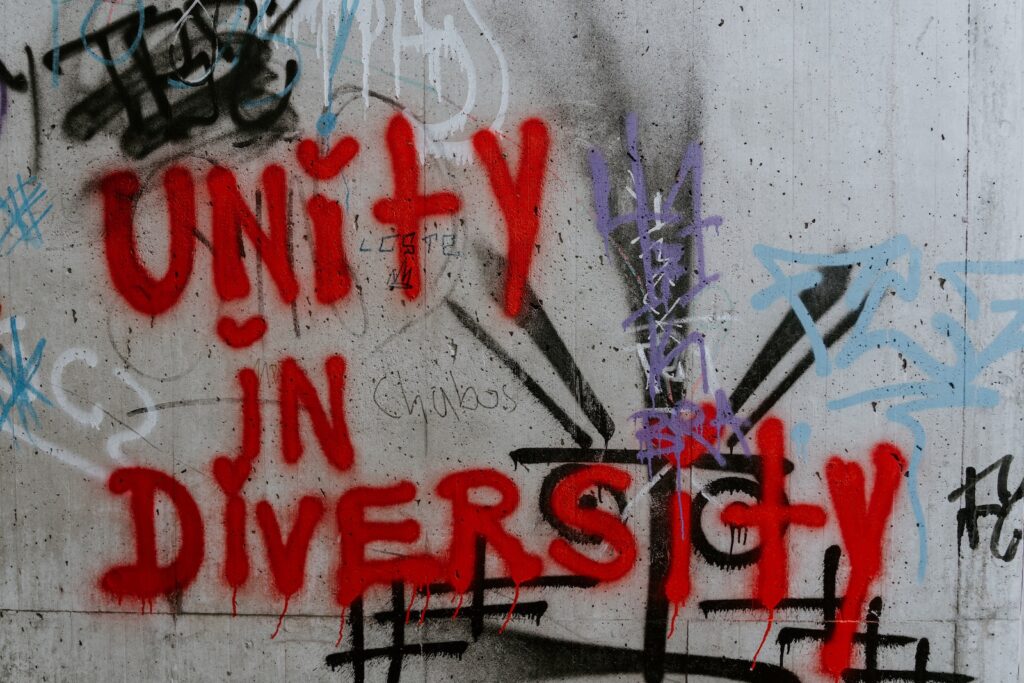“Today’s youngsters are lazy and entitled….!”
Yes, that is the easy thing to do: judge and discredit an entire generation. But guess what, this has been done since the beginning of time and interestingly, the prejudices have always been very similar. So, if this happened to us and our parents already and we all eventually turned out into the productive and value-driven people we are today – why should we care about the needs and wants of Generation Z? Why take the time to understand rather than judge?
There are two factors that really matter:
– we are truly in a change of eras. As we finally move out of the business culture of the industrial era, expectations and willingness for sacrifice, are changing irreversibly.
– for the first time in a long time, the labor market is changing. Looking at the global sinking unemployment rates and trends, we are moving from, what was for a long time an employers market, to employees having the choice now. This will only increase further over the next years too. Statistics show that the latest baby boomers will exit the labor market over the next 5 years and for every 2 people leaving, only 1 GenZ will enter the market. Whilst many gaps will be possible to be filled with AI and Automation solutions, attracting and retaining talent will become a top priority for most companies.

For the above reasons, companies need to make an effort to understand GenZ, their requirements and drivers better. So, let’s have a look at what is truly different with this generation and why these things matter:
Generation Z – their values, traits and asks:
Digital natives:
GenZ is the first truly digital native generation. Due to their upbringing and early influence of digital tools and realities, they are the first generation who feels as much at home in a digital world, as well as a physical one. For them, most experiences are indeed interchangeable.
Intrinsically eco-conscious:
This generation has grown up with the omnipresent warnings about our planet going downhill. I imagine it must have been hard to set foot into life and get to know the world, and understand how it all works if you grow up with projected doomsday scenarios everywhere. One result is that GenZ is (for the most part, excluding luxury influencers, etc.) the first generation that has developed a truly intrinsic eco-conscience. As they are reaching more economical buying power, we see trends shifting towards more sustainable consumption. Thankfully!
A personal side note here: It is easy to judge youngsters taking to the street and protesting for a better world. But think a moment: what other choice does a 13-year-old teenager have, what other outlet for their worry, their fear about their future and the future of their hypothetical children? They are too young to have economic power or an engineering degree to drive solutions. Please acknowledge and be respectful of their concerns, before you get annoyed the next time.
Expectations to the workplace:
Generation Z has similar expectations and requirements for a workplace as GenY already had, however due to the shifting labor market – they have much more power to push these demands through than previous generations. In the time of almost infinite digital tools, which mostly were invented to make our lives and work more efficient, it is legitimate that people no longer take pride to sit up their time at their physical desks but instead think long and hard about how they want to spend a big chunk of their day. This has led to, in my eyes, a wonderful development, mirrored in the asks of GenZ. They want purpose in their work. They want to feel that what they do, matters. They demand flexibility on how they integrate work with the rest of their life. They want work to be an experience. They are curious and want to learn quickly and to develop, as employees but also as humans.
GenZ is no longer driven by titles, company names and salaries in the same way as previous generations.
So imagine the following scenario:
A local municipality hires a young person. The work task at hand is to fill data from paper into a tool, without having to apply brainpower for judgment or solution finding. The person has to do this for the majority of their workday. A young person knows: a) there are many tools out there that could automate this job, b) I am not learning anything valuable for my work nor my life from doing this, c) my being here and doing this adds no value to anyone or anything, and finally d) the experience of sitting here, doing this bores, the hell out of me, there is no fun or excitement doing this work whatsoever. After a few weeks, the person gets called to the manager:” You are not motivated, you have no work ethic and a bad attitude, etc. “
Honestly – of course! See the direct clash of the old work mentality (just do as you are told for a maximum of hours every day, in exchange for your salary) and their expectations of fulfilment and growth (see above).
Consumption behavior:
A very important fact to understand about GenZ, is that compared to previous generations, GenZ spends most of their money on experiences rather than on physical things. It has become less important to own property, a car or a luxury watch than it is to travel, learn new sports, spend time in the Metaverse or invest in growth and self-development. GenZ spends as much money on their pets as no generation before and a significant amount goes to food and beverage consumption. They also consume much more sustainably and in support of local and small businesses. It’s easy to get a different picture when you check Tick Tock and Instagram, where many influencers pose with luxury cars, Gucci bags, etc. But according to most reports, GenZ buys less new, pays more for sustainable and recycled items and prioritizes experience over material possessions.
Loyalty:
Whilst GenZ are very loyal to their purposes and causes, they are the generation that is least loyal to brands. They want to be part of the product; they want to help inspire and shape products and services and they have high expectations to the companies who offer them. It’s all about connection, interaction and the experience with this generation.
Whilst boomers scored an average of 56% in the loyalist category (people who buy a product from the same brand multiple times), GenZ’s score of loyalists has declined to 37%.
Sexual diversity:
There is a reason, that we are seeing the term LGBTQ+ everywhere now. According to a study, only half of GenZ is exclusively attracted to people of the opposite sex, the varieties of how and with whom one can be intimate have dramatically shifted in the last years. Now again, the easy thing is to claim that this is a trend, something to condemn and demonize. However, the more likely thing is that people always were who they were, but it has been legitimized to think and act in a much more liberal way, so people finally feel they can be their authentic selves and live the sexual identity and lives they desire.

Given all these factors and circumstances, there are really only two options forward:
1. we stand by our opinion, formed based on a lack of understanding and shortly will find ourselves without people wanting to work for our company
2. or we understand, that more than ever before, creating a flexible, respectful and purposeful work culture will secure that we will have employees in the coming years.
Let’s have a look at what the things are, an individual and an organization can do to understand, attract, motivate and retain GenZ talent:
Creating understanding and building bridges between generations, for example with mentor programs. Team up junior and senior employees in formal mentorships that go BOTHWAYS. The purpose of this teaming is really to learn from one another and carry these learnings into the wider organization and culture. The only antidote to judgment is understanding and empathy.
Create a work environment and culture that resonates with the values of GenZ: flexibility of hours and workplace, diversity in teams, building an inclusive environment and feedback culture, reducing tedious, repetitive tasks to a minimum and injecting meaning into the job to be done.
Offering a learning environment: GenZ wants to grow and has a thirst for knowledge and development. Create best practice sessions, lessons, sharing hubs to help people grow in cross functional areas, that go above and beyond their own role. Create career development opportunities and a personal development plan, to guide GenZ’s through their professional next years.
Rethink your leadership style: Lead with empathy, inspiration and motivation rather than manage in the old “command and control” style. It’s no longer working for most GenX and Y, it certainly won’t work with GenZ.
Utilise technology: GenZ are digital natives. They will help organizations to get the most out of technology and their adoption curve is very short, which ensures a strong ROI. Use their digital skills for change management to get other employees excited and on board with using technology solutions.
Offer competitive compensation and benefits: whilst GenZ places purpose and culture highest, they also will have the choice of job they will take due to the shortage of talent. Even if they are not as money-driven as previous generations, they still seek financial stability and independence.
I hope with this post, I could encourage people to get curious to learn more about Generation Z, keep an open mind and see their views of the world as an opportunity, rather than a reason for frustration. One thing is for sure: if we don’t change our views about them – we soon will find ourselves without employees to fill the gap of the retiring workforce.




